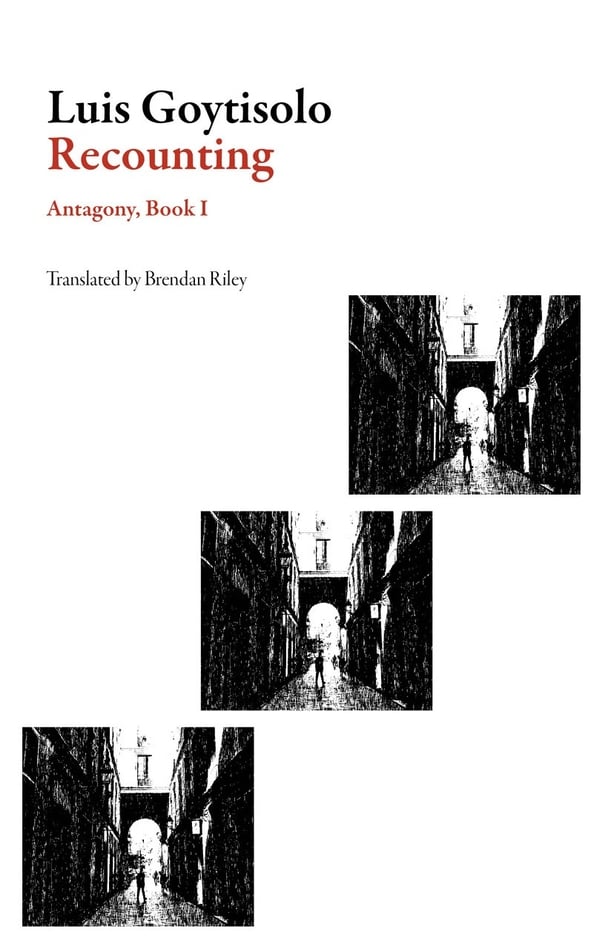Born in Barcelona in 1935, Luis Goytisolo’s fiction has been compared to the work of Proust and Joyce. Antagony, book one of Goytisolo’s tetralogy, Antagony (Antagonía) has been translated for the first time by Brendan Riley and published by that commendable house, Dalkey Archive Press.
General Franco’s censors prohibited the novel’s publication in Spain, and as result, it first saw the light of day in 1973 in a Mexican imprint, under the title, Recuento. Later in the decade, the novel was published in Spain as were the other books in the tetralogy. When it was reissued in one volume in Spain, critics welcomed it as one of the great novels of the 20th century.
Had it been written in English or French, it would have been recognised as the great work it is, wrote one commentator of what has been described as a bildungsroman. Moreover, the only other language it was available in was Polish until this first English edition. Comparison has been drawn with the style of Joyce’s Portrait of the Artist as a Young Man or Proust’s A la Recherche de Temps Perdu (In Search of Lost Time) although given that both those novels were written in different languages, any such comparisons should be guarded.

The 648-page novel is the story of one Raúl Ferrer Gaiminde, who is reared in a traditionalist, middle-class Catholic family in Barcelona, with whom we become acquainted with as the Spanish Civil War begins in 1936. Raúl’s mother is killed in a bombing raid, as indeed was Goytisolo’s mother (Julia Gay) who died in the first Francoist air raid in 1938.
The story, by far the longest in the entire tetralogy, has further autobiographical elements. In 1963, the author was himself imprisoned for four months in the Carabanchel Prison in Madrid, for supporting the Unified Socialist Party of Catalonia/Communist Party of Spain (PSUC). He began to write Antagonía while in solitary confinement, using sheets of toilet paper on which to write.
In time, Raúl’s older brother Felipe becomes a priest, while Raúl becomes a Communist and falls foul of the police for distributing leaflets urging a strike. He is duly arrested, following a traitorous tip-off, and beaten up as the police try to get names of fellow party members., The he is sent to languish in prison.
Recounting provides an illuminating account of the political ferment in Catalonia during the Spanish Civil War, as well as showing us the philosophical development of the tale's fearless protagonist. Brendan Riley’s translation is fluid and engaging, although there is some American argot at times. Minimial the instances of this may be, but they do jar somewhat. However, they are a small price to pay, now that we have book one of Goytisolo’s celebrated saga. In sum, Recounting is a fascinating account of momentous decades in 20th century Catalan history as it interfaced with the macro Spanish story.
Paddy Kehoe







